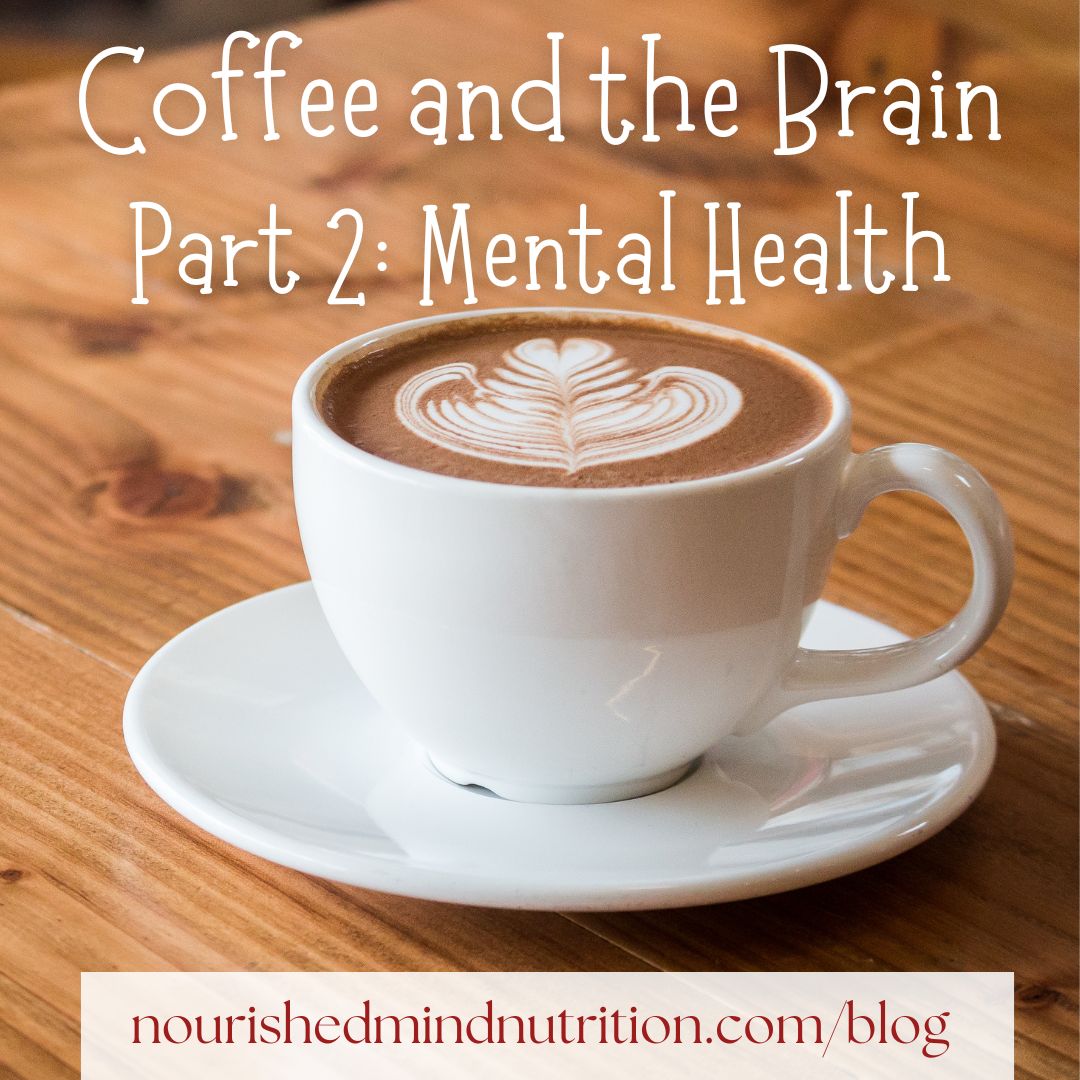|
In part 1 of this series on coffee and the brain, we discussed how daily consumption of coffee might help protect against dementia, stroke, and Parkinson’s disease. In this part we’re going to discuss how caffeine impacts mental health, including anxiety, depression, and ADHD. Our mental health not only affects how we think, but also our views on life and how we handle situations and emotions. In recent years with the COVID pandemic, there has been a sharp increase in anxiety and depression. This may be linked to the social isolation of the pandemic. Depression is characterized by low mood. It affects sleep, appetite, emotions, and can even cause physical symptoms in the body, including fatigue and headaches. On the other hand, anxiety disorders are characterized by a persistent and intense worry and fear. It can lead to social withdrawal, and includes symptoms like sweating, having trouble concentrating, constant unrest or nervousness, and an increased heart rate. Caffeine and Anxiety As previously discussed, caffeine is a stimulant that increases energy and alertness. It blocks a neurotransmitter (a chemical messenger that relays messages to the brain and body through the nervous system) called GABA. GABA plays a role in calming nerve cell activity, meaning that it helps us relax. By blocking GABA, caffeine can increase cognitive functioning, but can also increase anxiety. People with anxiety tend to have a lower tolerance to caffeine and are more sensitive to the effects. If you or someone you know has anxiety or gets anxious easily, decreasing caffeine intake can help. Similarly, with bipolar disorders, high caffeine intake can induce a manic episode. It’s recommended that those with bipolar disorder avoid consuming large amounts of caffeine. Caffeine and Depression For those with depressive disorders, studies have shown that caffeine tends to elevate mood. Since it acts as a stimulant, there’s a boost in brain functioning and energy levels. This can help with the fatigue commonly associated with depression. Even for those without a diagnosis of depressive disorder, the mood and energy boosting effects of caffeine are probably some of the main reasons its use is so common. It’s something people joke about (but are probably being serious). For instance, the “don’t talk to me until I’ve had my coffee,” or think about how coffee shops have become a hot spot for social settings. It’s easier to socialize when you have an energy- and mood-boosting drink in your hand. Studies have also shown that a moderate consumption of caffeine is associated with reduced risk of depression and suicide, as well as an elevated mood. Caffeine and ADHD ADHD is another disorder that can be impacted by caffeine intake. Symptoms include a short attention span, impulsivity, and hyperactivity. People are often unable to sit still, have difficulty concentrating, interrupt frequently, and have excessive movements. Interestingly, caffeine has been shown to help manage these ADHD symptoms by increasing focus and alertness. However, it’s important to talk with your doctor or psychiatrist before combining caffeine with other ADHD medications, and certainly do not stop taking ADHD meds without talking with your doctor first. In Practice... It's important to note the overlap between a lot of these conditions. Many people struggle with both depression and anxiety, or both ADHD and anxiety, for example. In these cases, it’s wise to be cautious about caffeine intake. When you drink coffee, how is your mood? Your sleep? Your stress levels? Your energy levels? It may be helpful to do a self-experiment, gradually decreasing your caffeine intake and then seeing how you feel without caffeine for a couple of weeks before reintroducing it and noticing the results. You might also consider other beverages besides coffee that contain a smaller, more manageable amount of caffeine, such as tea. The L-theanine in tea (and especially green tea) has a calming effect, while the relatively low caffeine content can still have a positive impact on focus and alertness. Caffeine primarily affects cognitive functioning. As we discussed earlier, it interacts with our nervous system and brain. It increases working memory, attention, alertness, reaction times, and, as we discussed today, it can improve mood. However, too much caffeine can lead to anxiety, paranoia, mood instability, and dependence on caffeine. Stopping or decreasing caffeine consumption can be challenging because of its withdrawal symptoms, like tiredness, headaches, and mood changes. Caffeine isn’t for everyone, and can intensify anxiety and bipolar disorder, but it can also help improve mood and might help manage depression and ADHD. I hope this two-part series was informational and useful. Thank you for reading! Main research article for more information: https://www.mdpi.com/851178 Chart for caffeine intake in foods/beverages: https://www.cspinet.org/caffeine-chart If you’re interested in learning more about how your dietary choices influence your mental and neurological health, reach out or schedule a virtual telehealth appointment with Erica, a mental health dietitian! Madison McGaugh with Erica Golden, RDN, LD, IFNCPMadison is a senior at Texas A&M University majoring in nutrition with a minor in psychology.
1 Comment
Dove Roy
11/16/2022 06:19:17 am
Good information, thanks
Reply
Leave a Reply. |
AuthorErica Golden, RDN Archives
March 2024
Categories |

 RSS Feed
RSS Feed
